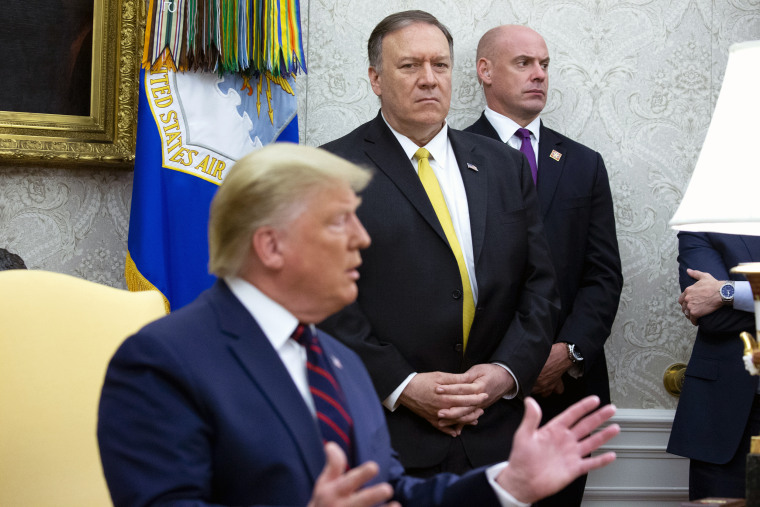It's been nearly two months since the New York Times first reported on U.S. intelligence pointing to Russia allegedly offering "bounties to Taliban-linked militants for killing coalition forces in Afghanistan -- including targeting American troops."
Soon after, any of the nation's leading news agencies confirmed key elements of the story: U.S. intelligence agencies had reason to believe Vladimir Putin's government offered financial rewards to those who killed American servicemen and women.
As we've discussed, the New York Times reported last week that the matter was serious enough that Secretary of State Mike Pompeo warned Russia's foreign minister over the allegations. Yesterday, in an interview with Radio Free Europe/Radio Liberty, Pompeo publicly confirmed last week's reporting.
"What we've said is this: If the Russians are offering money to kill Americans or, for that matter, other Westerners as well, there will be an enormous price to pay. That's what I shared with Foreign Minister Lavrov. I know our military has talked to their senior leaders as well. We won't brook that; we won't tolerate that."
Circling back to our earlier coverage, Pompeo's acknowledgement wouldn't ordinarily be especially notable. The nation's chief diplomat saw intelligence he apparently found credible, so he issued a warning to his counterpart in Moscow.
That is what we'd expect any secretary of State to do under the circumstances. The fact that U.S. military leaders apparently did the same thing with their Russian counterparts is also entirely in line with expectations.
But then there's his boss to consider. It was early last month when Donald Trump declared via Twitter, "The Russia Bounty story is just another made up by Fake News tale that is told only to damage me and the Republican Party. The secret source probably does not even exist, just like the story itself.... Just another HOAX!"
Soon after, the American president added that the bounty controversy is "all a made up Fake News Media Hoax started to slander me [and] the Republican Party."
Two weeks ago, Trump went on to concede he "never" broached the subject with Russian President Vladimir Putin, in part because the intelligence about the bounties -- intel he suggested last month didn't exist -- "never reached my desk."
Right off the bat, his explanation was difficult to take seriously, especially since the intelligence was reportedly included in the President's Daily Brief earlier this year.
But with each passing revelation, Trump's version of events looks a little worse. The idea that the entire controversy was "made up" by conspiring journalists was ridiculous before, and it's now discredited by members of his own team -- from Pompeo to White House National Security Advisor Robert O'Brien -- taking the intelligence seriously.
And the idea that Trump didn't need to broach the subject with his Russian benefactor is tougher to excuse given that his chief diplomat -- a loyal Trump ally -- felt the need to warn his counterpart in Moscow over the controversy the president pretended wasn't real.
The questions for Trump are simple: "What's the real reason you didn't bring this up with Putin?" and "Why does your own team disagree with your assessment about the controversy being 'made up' and a 'hoax'"?
